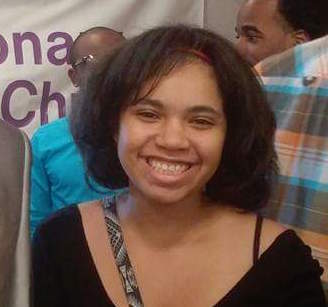Every week, a chapter of my book, “Husband, Liar, Sociopath: How He Lied, Why I Fell For It & The Painful Lessons Learned” (available via Amazon.com, just click on the title or book cover) will be published here on Lovefraud. To read prior chapters, please see the links at the bottom of the post.
Chapter 37A: “It’s Like Deja Vu All Over Again.” (Yogi Berra)
After the first seven years of my doomed marriage, Paul and I had “bottomed out,” and I almost left. Seven years later, our marriage was back on life support. By then, Jessica was twelve and Daniel almost nine. I was miserable. Nothing I did was ever right. If I made breakfast for Paul, he said he was too busy to eat breakfast together. “Can’t you see how busy I am? Why are you trying to slow me down?” If the next morning I made breakfast for only the kids and me, he rolled his eyes and suggested I was inconsiderate for not including him—that of course he had planned to have breakfast with the family, but now he was so hurt because I had excluded him that he just wanted to get to work.
If Daniel had trouble in a class and I mentioned that I was going to talk to his teacher, Paul accused me of meddling. When Daniel had trouble with a class four months later and I said I was going to let him work it out, Paul chided me for not demanding a conference with the teacher. “Why didn’t you meet with the teacher months ago?” I know life is complicated and no two people will ever see a situation exactly the same way, but I felt that if I said “black,” Paul would say “white.” If I said “white,” he would say “black” as a matter of principle. As in a formal debate, there were always good reasons for his “black” to my “white” or his “white” to my “black,” but it was unrelenting, depressing, and exhausting. Was I really that incompetent and unkind that nothing I did was right, well intentioned, or reasonable?
Contradicting me was always so well couched in sincerity, subtle character assassination, or the almighty backwards “Paul logic” that no battle seemed worth fighting or, if waged, was winnable.
Even though his office was just a town away, Paul rarely came home before 8:00 p.m. and often did not return home until 10:00, ostensibly due to oppressive work demands. Once home, he would make something to eat and then crash in front of the television. He rarely ate the food I had prepared earlier for the kids and me. If I suggested he come home to join us for dinner and then work at home, he told me that was impossible, because he needed to be available to his clients constantly. This made no sense, because with cell phones and laptop computers, Paul was available to his clients twenty-four hours a day, seven days a week no matter where he was.
With his “work schedule” filling all of Paul’s waking hours once again, his involvement with the children hovered at zero. I accepted his excuses and got used to functioning on my own as a virtually single parent. It hurt too much to expect Paul to be an involved father and husband and to have those expectations dashed continually or to be chided for having them at all. So, both consciously and unconsciously, I got used to his lack of emotional connection with Jessica, Daniel, and me as well as his minimal participation in our lives. But, like building a pyramid, once I accepted certain excuses as normal, this laid the foundation for the next level of excuses, and those for the next and the next. Still, there were occasions when Paul’s behavior was so selfish and callous that it cracked the walls of my defenses, shining a small spotlight onto his dark heart.
When Jessica was thirteen years old, she developed an unusual medical condition. Extensive, invasive tests were required to confirm the diagnosis. If the diagnosis was correct, several years of medical treatment lay ahead. She was scared.
Although the final multi-hour test was scheduled a month ahead of time, Paul made it clear he would not accompany us. I could handle it, right? Again, his demanding clients and his work were his reason for his absence. It seemed absurd that he could not plan around an important medical procedure for his daughter more than a month in advance, but there was no reasoning with Paul. He always had the “clients above everything/someone needs to support the family” trump card to play.
Jessica sobbed throughout the lengthy procedure, her fear almost giving way to panic several times. I stayed by her side for hours, holding her hand and comforting and consoling her. At the end of the test, we were both spent, but I pushed through my fatigue to stay strong for her. A week later, the results came back. Years of ongoing medical treatment lay ahead. I dealt with the doctors, the daily treatments, and the required monitoring. Paul never got involved. In Jessica’s greatest moment of weakness and need, Paul walked away (there was always work to do!) or told her to “just get over it.”
Start from the beginning:
Go to previous chapter:
Go to the next chapter:
Notes
Identifying names, places, events, characteristics, etc. that I discuss here and in my book have been altered to protect the identity of everyone involved.





































 If you are being stalked, here’s advice from a woman who’s lived it
If you are being stalked, here’s advice from a woman who’s lived it
Hope Springs
The you say ‘black’ and he says ‘white’ thing is a red flag, I think. Always having to be contrary to the normal thinking one.
If someone is constantly doing that, there may be a serious disorder problem.
regretfullymine
I was the parent who took the boys to doctor visits/dentist trips; he seldom, if ever, offered to do this himself (excuses ranged from being TOO busy farming, to that the medical visit was ‘unnecessary’. But, when procedures were to be scheduled, he HAD to be told, or let in the decision to do this, or wait. But, when I tried to keep him in the loop, he was ‘too busy’ and I could decide for both of us. I NEVER knew if what I was doing, was right, or if I went ahead and did it, I was WRONG for deciding without HIS input. And he would counter my illogic with HIS logic, which often got very weird. I couldn’t begin to keep up with the twists and bends in HIS thinking; but I was supposed to KNOW, without being told! Go figure that out!!
DoneWithThat2
Our ability to care is what makes us human. When we CARE about our children, animals, or the planet, we are extending what matters to us, BEYOND ourselves.
Cognitive Dissonance is resolved by realizing that we have been deceiving ourselves by holding in high regard, this person that does not care for anyone else but themselves to the exclusion of everyone and everything else.
That sounds like I have identified a selfish person. But the Rabbit Hole is deeper than that, isn’t it?
For those of us that have resolved that dissonance, we come to know that it is more than that. It is the epiphany that the person we are with is NOT human. That they are incapable of extending their care beyond themselves. Ever. Period.
It is the realization that one has been living with, trusting, loving, and projecting onto, someone who is not truly human.
Psychopaths/Sociopaths/Narcissists walk among us. They have paid close attention to how humans behave and have become very adept at mimicking that behavior. But they are wired to ONLY, EVER care for themselves. They live in a world of service to self. In their world, there really isn’t anyone else. When you get that, you can now see the connectedness of their behavior. If they have you swirling in confusion with your suffering, then you are NOT looking at them. That is what they want. If you are off balance, then you will not be able to see the truth that they have enslaved you to do their bidding, to take care of the things they don’t want to be bothered with. When we accept the “lie”, (I know he/she loves me), we surrender our Free Will and become a slave.
Think about what the average person thinks a monster looks like. Would they guess for a second that it looks like the psychopath/sociopath/narcissist that you know?
We have, through our suffering, been given profound information. information that humanity needs.
Monsters walk among us. Looking like average everyday people. We need to fully wake up to that and when we are ready, wake others up. Thank you Donna and Ona for getting the word out.